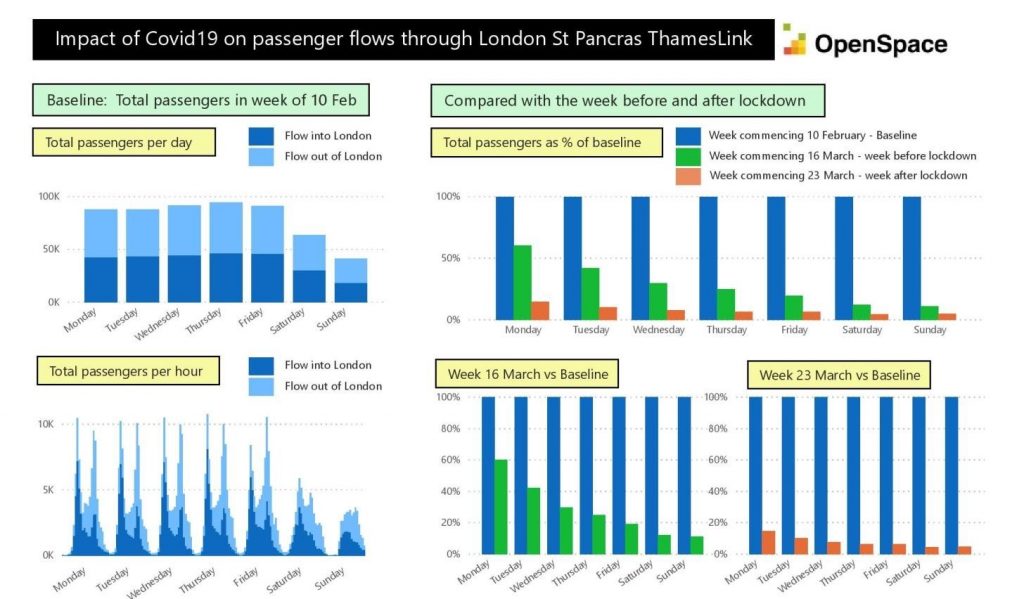The pandemic has hit the transport industry hard.
Social distancing and the lockdown have led to massive reductions in travel with some rail organisations reporting up to a 95% drop in passenger numbers and, hence, revenue, according to analysis carried out by Nicolas Le Glatin, CEO of OpenSpace. Similar commercial issues for airports and airlines have been well reported and, no doubt, buses, ferries and all other transport companies are suffering the same.

Credit: Nicolas Le Glatin, OpenSpace
Despite the restrictions, travel is still operating for essential journeys, and front-line changes have been implemented to keep both key-workers and passengers safe.
Disabled passengers who are key-workers or who have to make a necessary journey by public transport may still need to be provided with assistance in order to make their journey, and they would still expect to remain safe from the virus in doing so – as, of course, would the members of staff providing the assistance.
On the rail network, it seems that assistance can still be booked if required on mainline journeys, and that this will be provided by staff wearing gloves and masks for protection. Whilst this is helpful, these measures would not be infallible, and a conscious decision must be taken by the individual passenger on whether the risk is acceptable to them.
It has also been reported that TfL’s solution of providing a free taxi for those not able to be assisted safely is still in place. What is not clear is whether this has been extended as a result of the virus, but if so, it is doubtful whether this is a sustainable solution, especially given the reduction in passenger numbers and associated income.
As an advocate for the creation of an environment that supports independent travel for all, and having written about it in the past (albeit mostly from a rail perspective), it occurs to me that social distancing – despite the negativity surrounding it – is in complete alignment with this ideal. After all, by definition, the need to travel in an independent way also fulfils the requirements of social distancing.

I am particularly thinking about some technology advances that may be in various stages of development, and that could have their roll-out accelerated, using the opportunity presented by this outbreak, given there are fewer passengers around and the need for social distancing providing a more urgent need within a fertile testing ground.
For example, Wayfindr is an open standard that enables visually impaired people to negotiate indoor spaces via audio navigation, but is flexible enough to provide benefits for all customers. It has been previously trialled by TfL and by other rail companies around the world. There could be a case now for completing any trials and implementing a roll-out as a permanent feature of the network – and then repeating this across the country.
Whilst I recognise the consequence of a COVID-19 outbreak is hardly going to get organisations rushing out projects that raise or lower all the platforms on train, tram and metro systems so that unassisted, step-free boarding can be achieved by the end of the year (or something), perhaps there are initiatives that could be implemented that might have otherwise languished as a nice-to-have, or maybe have even fallen by the wayside. Perhaps these can be reprioritised in the light of the coronavirus outbreak and the impending ‘new normal’.


